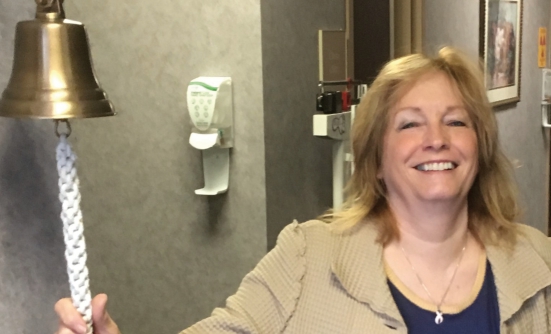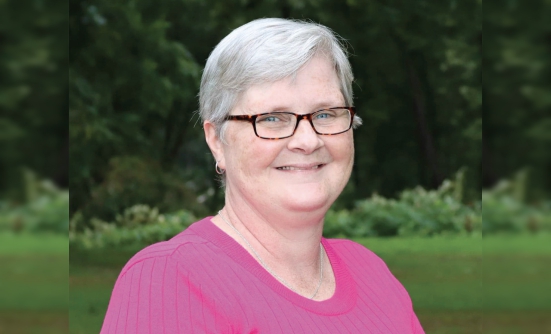Patients with cancer and cancer survivors look for resources to help improve their quality of life through cancer treatment and beyond. Many patients with cancer and survivors use complementary and integrative modalities as part of supportive care during treatment and to reduce side effects after treatment.
Complementary and integrative medicine may also give patients and survivors tools to focus on health concerns and their desire for improved overall health and wellness. Yoga has been practiced for thousands of years. It is rapidly growing in popularity in the West, and it may be a helpful tool for people with cancer.
Why Should You Practice Yoga?
People participate in yoga practice for physical and emotional health and well-being. Yoga may help alleviate many symptoms, such as sleep difficulties, muscle or joint pain, anxiety, and depression.
Practicing yoga may also help to improve your strength, flexibility, and balance.
Many people find that a regular yoga practice helps them to manage stressful situations related to their cancer treatment and to other day-to-day stresses, such as challenges with family, friends, and work.
How to Choose the Style of Practice?
Yoga practice has many different options, so patients with cancer and cancer survivors should be careful in choosing which type of class is safest for them. The styles of yoga practice vary—some are very athletic, and others are more gentle and restorative. Yoga can even be practiced while sitting in a chair, or from the bed.
Patients with cancer and survivors should, in general, avoid yoga classes that are fitness-based that may be too vigorous. Practicing in a hot environment may also be ill-advised for patients, because practicing in a heated environment has special risks, such as dehydration and overheating.
The good news is that several gentle and appropriate styles of yoga are available. Below are some tips for finding the perfect yoga fit for you.
- Training. Ask your potential yoga instructor about his or her training and certification; the different levels of training are:
- Registered Yoga Teacher (RYT) 200. The instructor has undergone 200 hours of formal education and yoga training
- RYT 500. The instructor has graduated from the formal 200-hour training program and obtained an additional 300 hours of training
- E-RYT 500. The instructor has obtained an additional 1,000 hours of training
- C-IAYT. The instructor is certified as a yoga therapist by the International Association of Yoga Therapists: this level instructor has up to 1,500 hours of education and training, including working in a clinical setting with people who have different medical conditions, including cancer.
- Cancer experience. Ask the instructor about his or her experience working with people who have cancer or with other health conditions. Instructors should be confident and comfortable in offering modifications to help keep you safe.
- Cleanliness. Does the yoga studio appear clean, and are mats and yoga props sanitized after each use?
What Does the Research Tell Us?
Research on using yoga practice as a form of supportive care for those diagnosed with cancer continues to grow, showing the benefits for patients and survivors. Two recent publications highlight the benefits of yoga to people diagnosed with cancer.
A 2017 report from the American Society of Clinical Oncology highlights the benefits of yoga as an effective supportive therapy for people with lung cancer and their caregivers.1 Participants in this study reported feeling more stamina and less stress while practicing yoga.
And the authors of a review of studies using yoga as a therapeutic intervention recommended yoga as a supportive practice for improving sleep and reducing fatigue, anxiety, and depression in women diagnosed with breast cancer.2
What Patients Are Saying
The following are a few examples of cancer survivors who have practiced yoga after their diagnosis.
“When I come to yoga class, I usually feel stiff in my lower back, and have pain from my arthritis. The yoga stretches, breathing techniques, and relaxation bring comfort and peace to me,” said Nancy, a bladder cancer survivor.
“Yoga has helped me to focus on living. I didn’t think I would ever dance with my grandchildren again, but I am! I feel stronger, more awake and clear-headed, and I have less pain. It’s hard to imagine how something so easy can have such a big impact,” said Annette, a leukemia survivor.
Bottom Line
Yoga practice may be very beneficial for patients with cancer and cancer survivors.
Ask the instructors about their training and experience in working with people who have cancer.
Always talk with your healthcare provider before beginning any new exercise activity. Together, you can make well-informed decisions about your health.
References
- The ASCO Post. 2017 ASCO palliative care: yoga can be an effective supportive therapy for people with lung cancer and their caregivers. Updated October 24, 2017. www.ascopost.com/News/58184.
- Cramer H, Lauche R, Klose P, et al. Yoga for improving health-related quality of life, mental health and cancer-related symptoms in women diagnosed with breast cancer. Cochrane Database of Systematic Reviews. 2017;1:CD010802.
Key Points
- Complementary and integrative therapies during cancer treatment help to reduce treatment side effects
- Practicing yoga may also help to improve your strength, flexibility, and balance
- Regular yoga practice also helps to reduce stressful situations
Patient Resources
National Center for Complementary and Integrative Health
www.nccih.nih.gov
International Association of Yoga Therapists
https://yogatherapy.health
About the Authors
Ms. Yaguda is Integrative Oncology Coordinator, Atrium Health, Levine Cancer Institute, Charlotte, NC; and Ms. Leonard is Director, Davidson Yoga Therapy, Charlotte, NC, and provides yoga therapy at Atrium Health, Levine Cancer Institute. This article was originally published in February 2019.

















